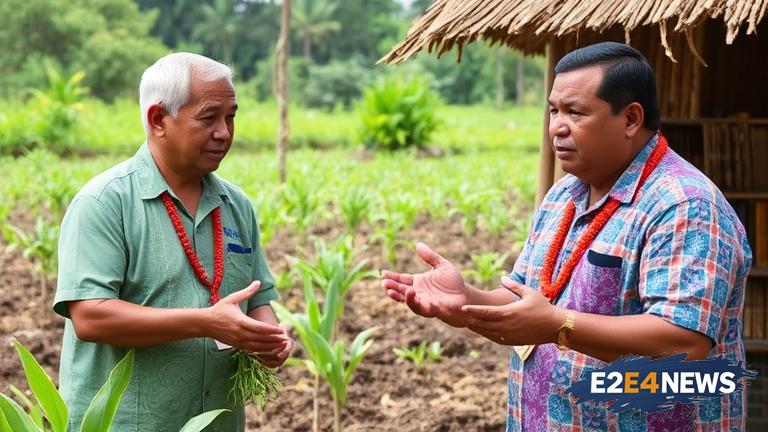The Fijian government has reaffirmed its dedication to the country’s agricultural sector, with Minister Bainivalu at the forefront of efforts to engage with farmers and address their concerns. Despite the challenges posed by the COVID-19 pandemic, Minister Bainivalu has continued to take calls from farmers, demonstrating his commitment to their welfare and the growth of the industry. This proactive approach has been well-received by the farming community, who appreciate the Minister’s willingness to listen to their concerns and work towards finding solutions. The Fijian government has implemented various initiatives aimed at promoting agricultural development, including the provision of subsidies, training programs, and infrastructure development. These efforts have been designed to increase productivity, improve efficiency, and enhance the overall competitiveness of the sector. Minister Bainivalu has also emphasized the importance of adopting sustainable farming practices, recognizing the need to balance economic growth with environmental protection. The Minister has encouraged farmers to explore new technologies and innovative methods, such as precision agriculture and vertical farming, to improve yields and reduce their environmental footprint. Furthermore, the government has established partnerships with international organizations and private sector entities to access expertise, funding, and markets, thereby expanding opportunities for Fijian farmers. The farming community has welcomed these initiatives, acknowledging the potential for increased exports, job creation, and economic growth. However, some farmers have expressed concerns regarding the impact of climate change, soil degradation, and water scarcity on their livelihoods. Minister Bainivalu has assured them that the government is working to address these issues, investing in research and development, and implementing measures to mitigate the effects of climate change. The Minister has also highlighted the importance of empowering women and youth in agriculture, recognizing their critical role in driving innovation and growth. To this end, the government has launched programs aimed at providing training, mentorship, and financial support to these groups. Additionally, Minister Bainivalu has emphasized the need for farmers to diversify their crops and explore new markets, reducing their dependence on traditional commodities and enhancing their resilience to market fluctuations. The government has also invested in rural infrastructure, including roads, irrigation systems, and storage facilities, to improve the efficiency and productivity of the sector. Moreover, Minister Bainivalu has encouraged farmers to adopt a more business-oriented approach, focusing on value addition, branding, and marketing to increase their competitiveness and profitability. The Minister has also recognized the importance of preserving Fiji’s unique cultural heritage and traditional farming practices, while also embracing modernization and innovation. Overall, Minister Bainivalu’s engagement with farmers and his commitment to the agricultural sector have been widely praised, with many acknowledging the positive impact of his efforts on the industry. As the Fijian government continues to work towards a more prosperous and sustainable agricultural sector, Minister Bainivalu remains a key figure, driving progress and promoting the interests of farmers and the nation as a whole. The future of Fijian agriculture looks promising, with the government’s initiatives and Minister Bainivalu’s leadership poised to unlock new opportunities and drive growth. With the sector’s potential for job creation, economic growth, and environmental sustainability, the government’s focus on agriculture is likely to have far-reaching benefits for the country. In conclusion, Minister Bainivalu’s dedication to the farming community and his efforts to promote agricultural development have been instrumental in shaping the future of the sector, and his continued engagement with farmers will be crucial in addressing the challenges and opportunities that lie ahead.





